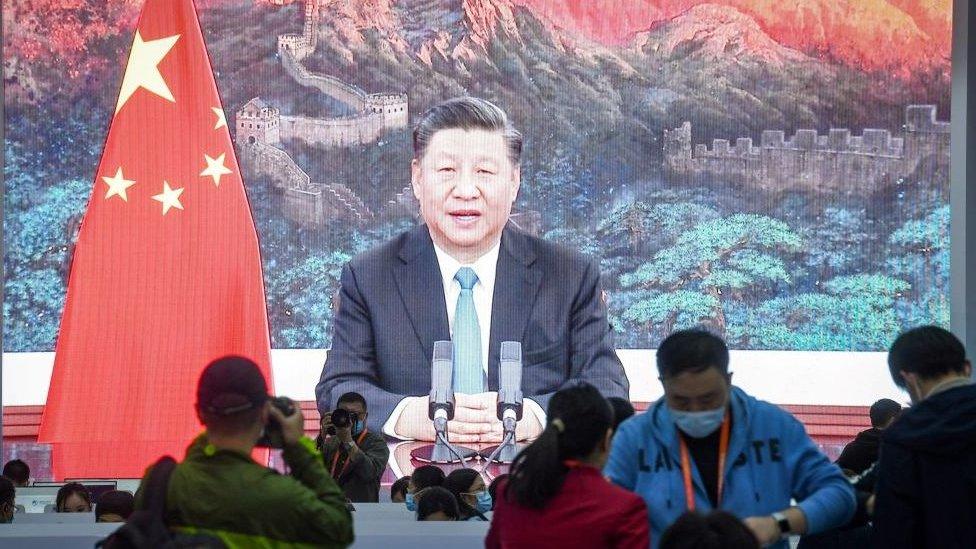President Xi at Apec: China pledges to open up its 'super-sized' economy
- Published

Chinese president Xi Jinping has said China will open up its "super-sized" economy to import more high-quality goods and services.
China will also sign free trade pacts with more countries, he said on Thursday.
Mr Xi was speaking at the Asia-Pacific Economic Cooperation (Apec) forum, which includes the US and Russia.
It is as yet unclear if US President Donald Trump will be speaking at the event, which continues on Friday.
Mr Trump has previously used the event to lay out his competing vision for the future of global trade.
China and the US have been involved in a trade war since 2018 with a number of flashpoint over import taxes and Chinese technology firms operating in America.
Mr Xi also used Thursday's Apec speech to deny that China would be pulling away from other economies - known as decoupling - and warn against protectionism.
"We will not reverse course or run against the historical trend by 'decoupling' or forming a small circle to keep others out," Mr Xi said.
Chip wars: The US v China
Free trade
Mr Xi's comments come off the back of signing the world's largest regional free-trade agreement over the weekend, encompassing almost a third of the world's economic output.
The Regional Comprehensive Economic Partnership (RCEP), almost a decade in the making, includes China, Japan, South Korea and 12 other Asian nations.
"In today's world where economic globalisation has become an irreversible trend, no country can develop itself by keeping its doors closed," Mr Xi added.
However, China is involved in a number of trade disputes with rival economies, including Australia which it has imposed import tariffs of up to 80% on barley.
Last month, Mr Xi and other Chinese leaders laid out a blueprint for China's five-year plan and key objectives for the next 15 years.
They include a goal to turn China into a "high income" nation by 2025 and advance to a "moderately developed" nation by 2035.